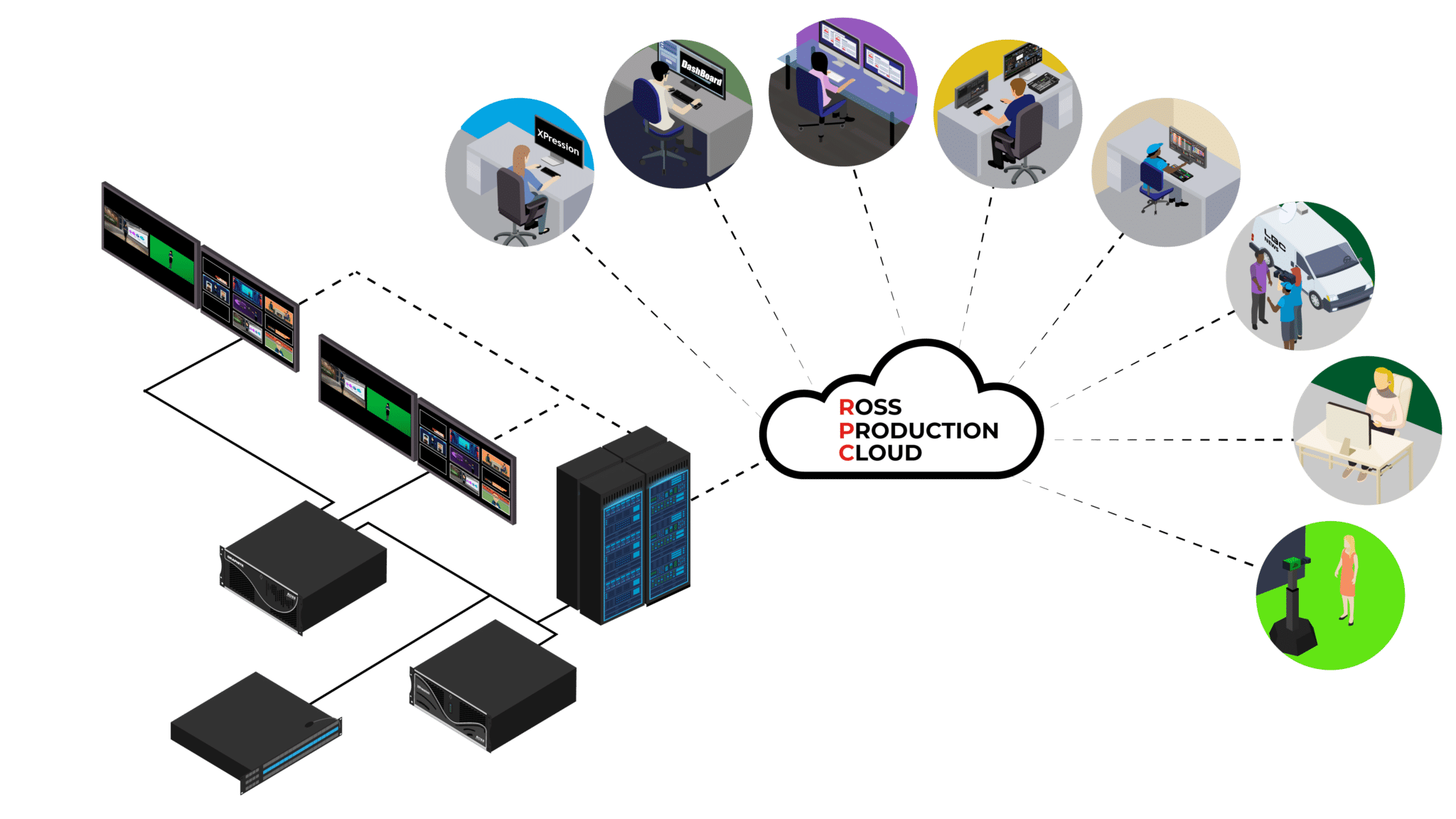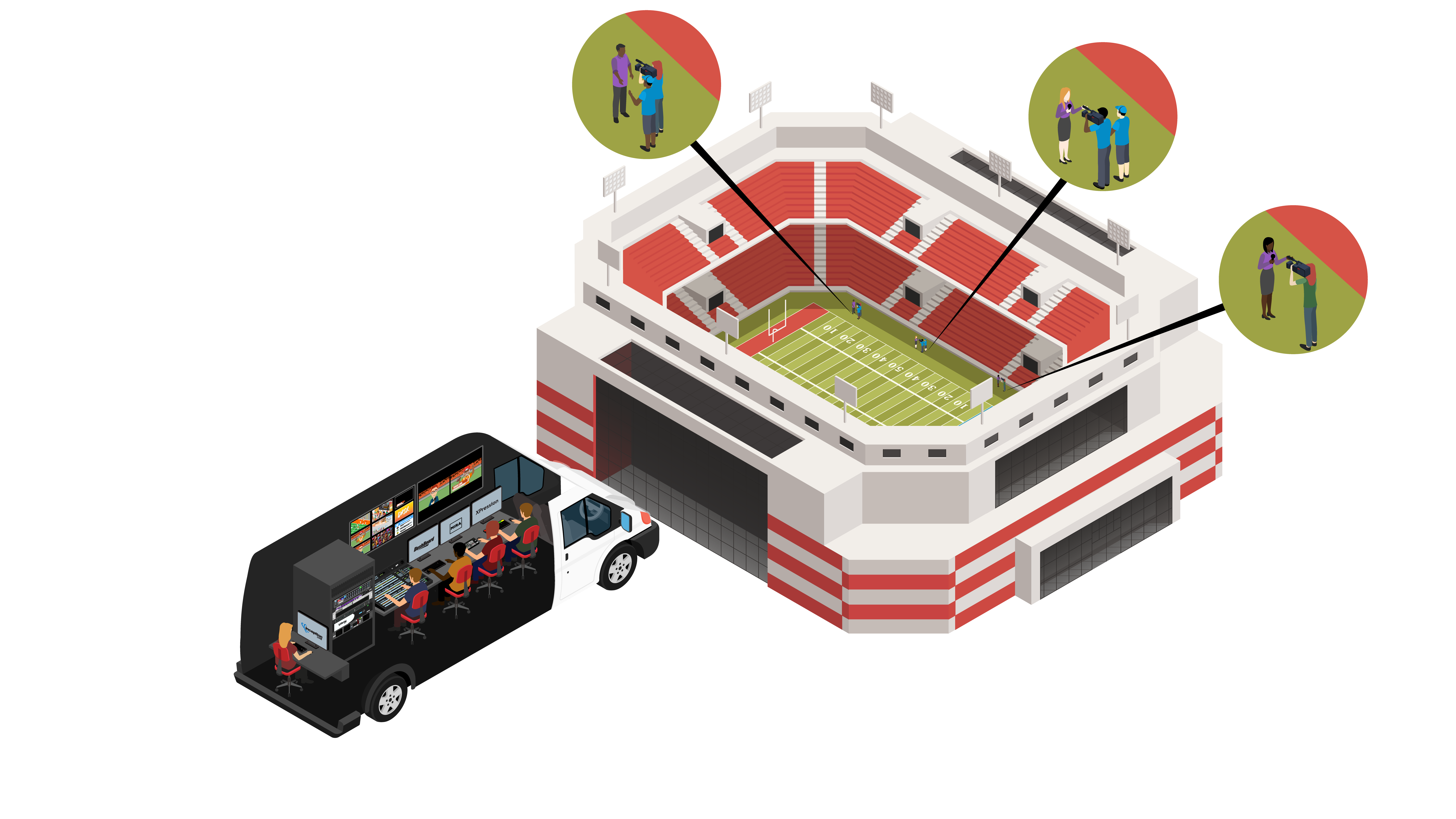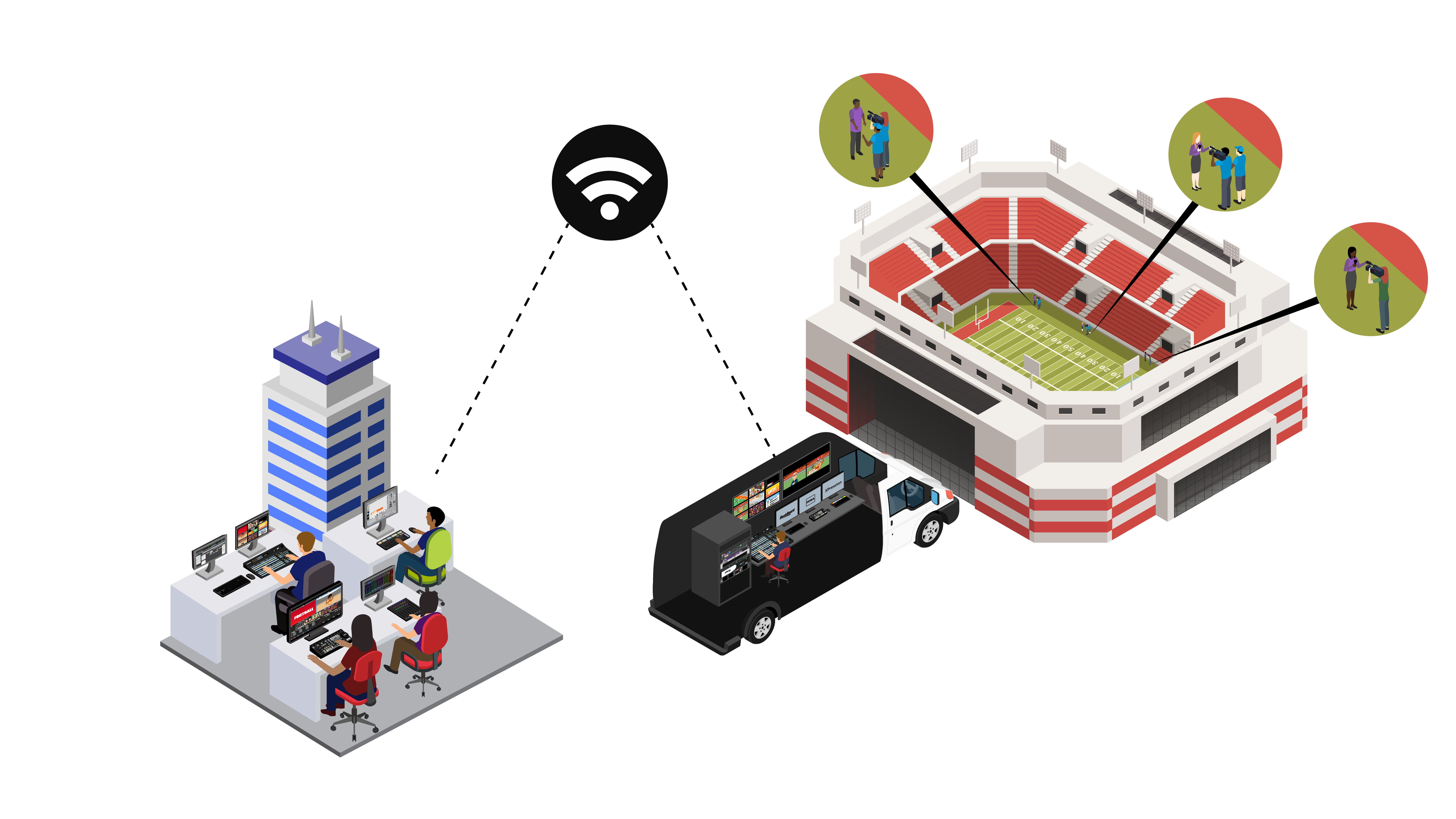March 3, 2021 - Les O'Reilly, Industry Trends
The Rise of Remote Production


Remote production became the most important topic in broadcast and content delivery in 2020. For the past few years, remote production has been driven by the desire to achieve efficiencies and get more content to air. With the global pandemic raging and physical distancing protocols in place, production professionals have pivoted to adopt decentralized remote production models.
Historically, the term remote production has been used to describe a model where an Outside Broadcast (OB) van is deployed to a specific location to deliver the full end-to-end production of a broadcast. In this instance, however, the term remote production is used to describe a production outside of the traditional studio environment.

As remote productions evolved, the Remote Integrated Model (REMI) was introduced with the goal of being able to scale-up existing production workflows while also eliminating the costs associated with dispatching crews to multiple locations. Through the REMI model, a production control room within a centralized studio can power multiple events.

When the pandemic required changes to keep staff safe, the Ross team responded to support it with a new take on remote production that was powered by the Ross Production Cloud. The Ross Production Cloud enables the quick deployment of a distributed production solution and allows users to work anywhere while maintaining their familiar production workflows. The distributed Ross Production Cloud model addresses a production scenario where operators and engineers need to access equipment remotely and enables on-air talent to join the production from home.

Learn more about how you can enable remote productions in this on-demand webinar.
Like all major sports leagues, the WNBA was dramatically impacted by the global pandemic earlier this year and as a result, the league completed an abbreviated regular season in a bubble format in Bradenton, FL. To support the world feed broadcast of all 96 games within the bubble, Ross Production Services was onsite to support a socially distanced workflow with the aid of the Ross Production Cloud and Ross Video’s Furio Live remote-controlled camera systems. Craig Rothberg, a freelance producer, spoke about his experience directing 52 of the 96 games within the bubble. He noted that there wasn’t a lot of time to prepare for the new workflow, but the Ross Production Cloud enabled his team to quickly easily connect with on-air talent from their homes and “we simply worked out our craft as we went along”.
Rothberg continued by detailing how he interacted with a number of different on-air presenters throughout his time in the bubble via the Ross Production Cloud (RPC), and explained that “we had full communication just like you would have at a regular game where the play-by-play announcers and analysts are sitting courtside. The communication was great and there were no delay issues whatsoever. From my perspective, it felt like a regular game”.
When speaking about the ease of use of the Ross Production Cloud’s online portal, Rothberg highlighted a moment where they brought in a 9-year old junior reporter as a guest to the broadcast. “She jumped on to the broadcast with a simple login and even she commented on how quick and easy it was to go to air,” said Rothberg.
To learn more about how Ross Production Services supported the WNBA bubble broadcast, you can read this article published by the Sports Video Group: Inside WNBA Bubble, Ross Production Services’ Remote Commentary, Robo Cameras Come Up Big.
The pandemic provided a unique challenge for many production professionals, many of whom combined technology in innovative ways to ensure that their shows continued. These innovations opened many people’s eyes to the advantages to running productions remotely – talent can join from anywhere, the best production team can be assembled, people’s availability has increased – and we expect that remote production solutions will be in higher and higher-demand as people adjust to this new normal.
Ross Video is continuing to drive innovations that meet our customers’ demands for efficiencies and cost reduction. We are working on new and innovative ways to enable talent to deliver meaningful high-quality content regardless of where they are located.
Interested in learning more about how you can enable remote productions? Click here for more information on our Interstellar remote production portal.
We’ll put you in touch with a member of our team to discuss your specific needs.